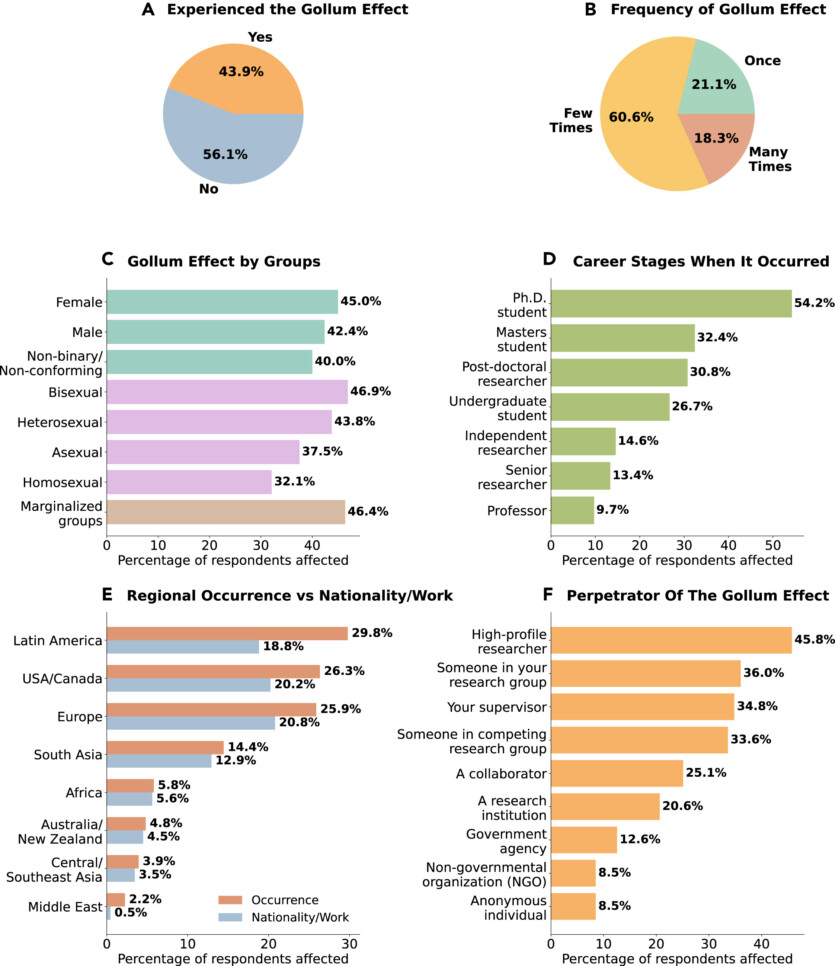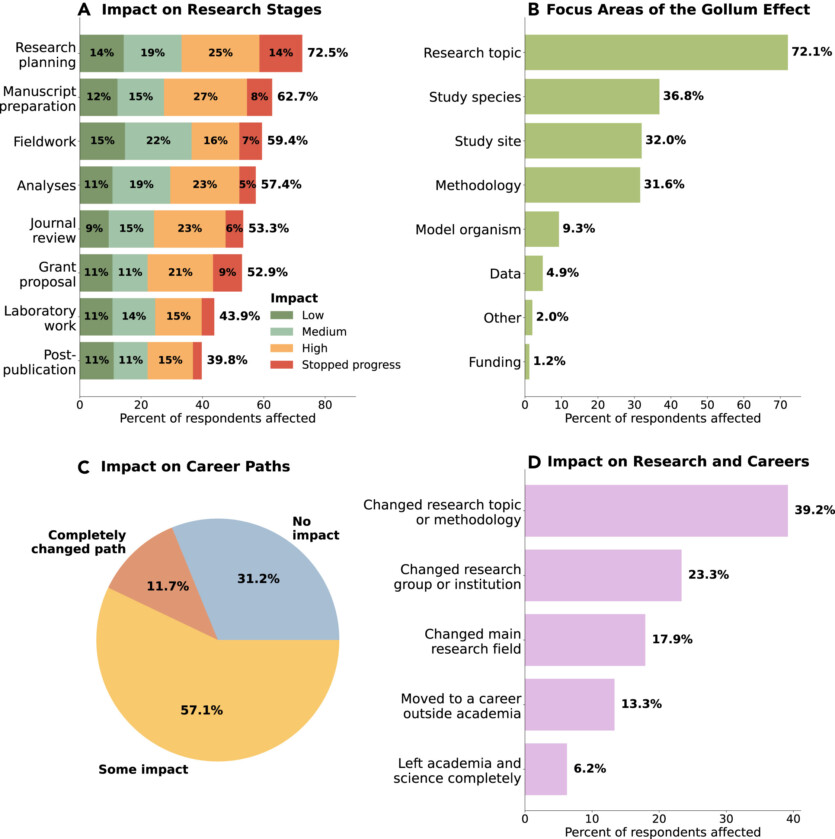
Recently, the term «Gollum effect» has become widespread among scholars, characterizing toxic proprietary behavior and the desire to monopolize resources and individual topics for research by senior researchers.
A survey, conducted on this topic by scholars from the a survey by the German Center for Integrative Biodiversity Research in Leipzig shows, that most respondents, who were ecologists, admitted to experiencing toxic behavior by senior researchers and their own supervisors.
The survey involved 563 environmental scientists from 64 countries. According to the results, 44% of respondents stated that they had experienced the «Gollum effect» from senior scientists, which manifested itself in a refusal to share data or resources for conducting research and concealment of scientific methods in order to make it impossible to conduct similar studies. Of these, 18% have experienced. It repeatedly the «Gollum» effect was especially pronounced in relation to scientists at the beginning of their careers.
At the same time, 46% of respondents indicated that the toxic behavior was demonstrated by a more senior scientist, and 35% — indicated that they felt «the Gollum effect» from one’s own supervisor.

Lead researchers, team members, supervisors, and competing groups often prevented research planning, preparing manuscripts and conducting field research. As a result more than two-thirds of respondents reported career challenges, including abandoning research, changing research institutions, or leaving academia or retiring from research. At least 20% of the respondents admitted that they behaved in this way due to extremely high competition, fear of failure, and limited resources.
Among those who have experienced the «Gollum effect», 54% of respondents said it happened during their doctoral studies, 32% during their master’s studies, 31% as postdoctoral fellows, and 27% as students. But independent researchers, senior researchers, and even professors were also affected by this effect.

In addition, researchers report widespread cases of theft of scientific ideas or undermining of efforts to conduct certain studies. Others have been pushed out of their own research areas by senior scientists who monopolize research sites, samples, or topics. In addition, a significant number of researchers consider certain sampling sites within a particular study to be their own territories and do not allow other scientists to study certain organisms or environments.
A key reason for the widespread occurrence of «Gollum effect» among scientists, researchers believe that the academic environment is extremely competitive. Limited research funding and limited career opportunities have created an environment that exists on the principle of «publish or be done with it». Scholars are under constant pressure to secure resources, produce articles, and carve out their own space in an aggressive and toxic academic environment.
Such actions and misappropriations ultimately undermine the ideals of collaborative and open science by stifling diverse perspectives and knowledge generation, wasting effort on unnecessary duplication, slowing the pace of scientific progress, and potentially delaying critical breakthroughs. To address the problem, the researchers propose an extensive discussion of the impact and implications of the «Gollum effect». They also support the idea of reforming the culture in academia, promoting the practice of open science and accountability, as well as providing support to emerging researchers.
«Not sure about the veracity»: MIT retracts article on the benefits of AI in scientific research
The results of the study are published in the journal One Earth
Source: Nature

Spelling error report
The following text will be sent to our editors: